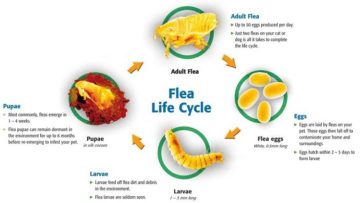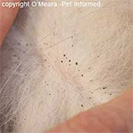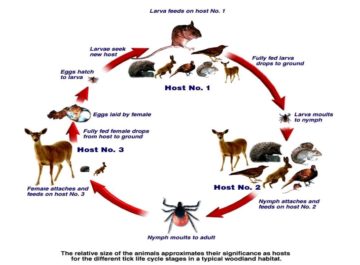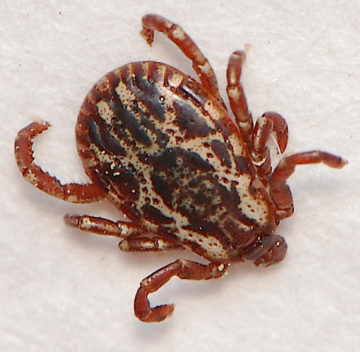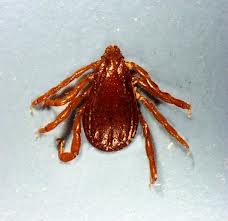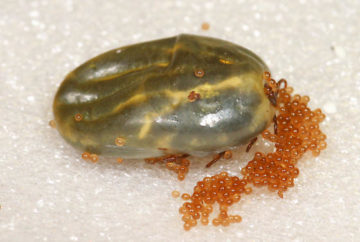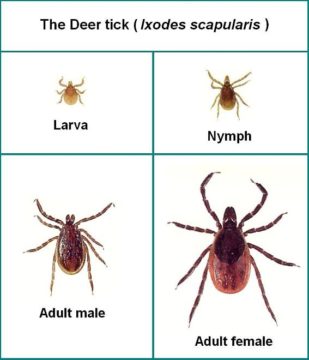At Robinson Veterinary Services we believe that an ounce of prevention is worth a pound of cure. So by doing a few small things, you can minimize the risk of preventable disease and your pet can lead a happy and healthy life. In order to help keep your pet as healthy as you can there are a number of preventative measures that should be taken.
Preventative
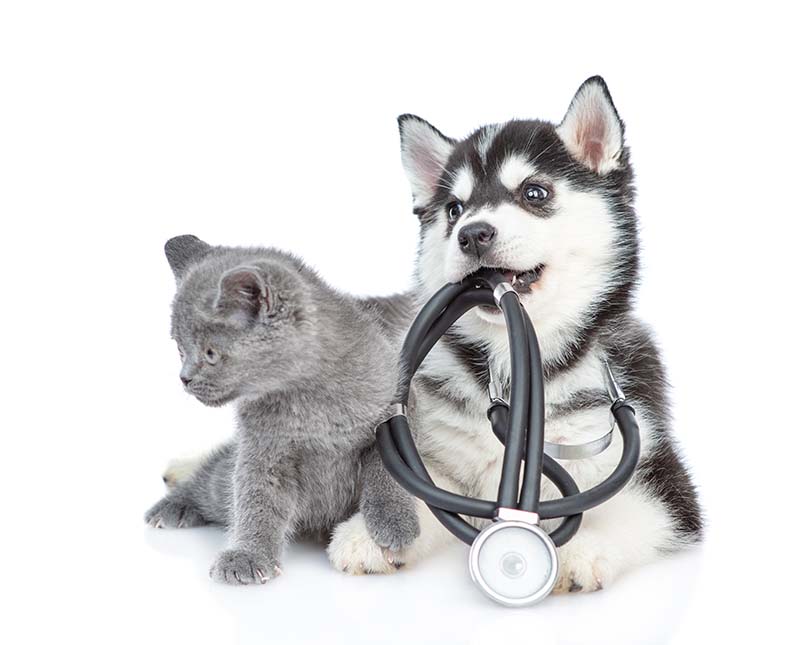
Preventative Medicine
Yearly Physical Exams
Physical examinations by the doctor are very important and may help us to find underlying problems that we may not otherwise be aware of (ie, heart, ear, or dental problems). By finding these problems early during a physical exam we may be able to prolong the patients life.
Yearly examinations are essential for keeping your pet healthy and active.
Request an Appointment.
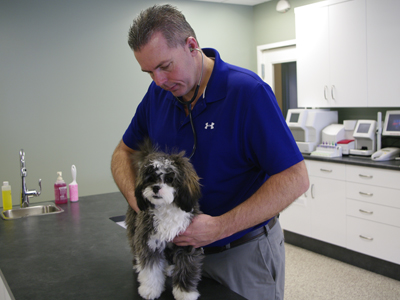
Yearly Physical Exam
Deworming for Intestinal Parasites
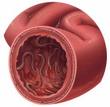 Deworming your pet on a regular basis for intestinal parasites is another very important part of preventative care. This is important because these parasites are transmitted to humans and are a great health hazard. Please ensure that you and your family adhere to strict sanitation principles when ever you have close contact with any animal.
Deworming your pet on a regular basis for intestinal parasites is another very important part of preventative care. This is important because these parasites are transmitted to humans and are a great health hazard. Please ensure that you and your family adhere to strict sanitation principles when ever you have close contact with any animal.
Deworming should be performed at least on a bi yearly / yearly basis depending on the exposure to parasites your pet may have. Animals that go outside and have the potential to come in contact with parasites in the ground or in other feces, as well as pets who eat rodents like birds, mice, rats, rabbits should be dewormed more frequently.
Testing is performed by observing a fecal sample microscopically to see if any parasite eggs are present.
Parasites may cause a pot belly, diarrhea, bloody stools, vomiting and in severe cases- dehydration, weight loss and even death if not treated.
Wellness Testing
 Wellness testing is a series of blood tests based on age that are recommended to be performed yearly on patients (especially pets that are over 8 years old). These blood tests will show us how well the patients organs are functioning (ie, kidney and liver function), it will also tell us if the patient is anemic, has any infections, or glucose problems.
Wellness testing is a series of blood tests based on age that are recommended to be performed yearly on patients (especially pets that are over 8 years old). These blood tests will show us how well the patients organs are functioning (ie, kidney and liver function), it will also tell us if the patient is anemic, has any infections, or glucose problems.
It is very important to find any underlying problems before your pet shows any signs of illness as most animals do not show any signs of illness until they have lost 75-80% of organ function. Finding abnormalities in blood analytes can be suggestive of an organ issue and when caught early is managable most of the time and can be treated accordingly.
Our new SDMA test is an early indicator of kidney disease. When this substance is found elevated in the blood, this would indicate a 20% loss of kidney function. 2 years ago, all we had was urea and creatine to rely on for kidney function. The problem with this is when these become elevated in the blood the kidneys have failed 70-75% which is considered end stage and to late. Advances in blood testing for animals has become more precise and specific making it good to have regular bloodwork done.
Heartworm Prevention
 Heartworm unlike intestinal parasites (ie. roundworm, whipworm, etc.) are not found in the stomach or intestinal tract. They are found in the bloodstream and are transmitted by mosquitos.
Heartworm unlike intestinal parasites (ie. roundworm, whipworm, etc.) are not found in the stomach or intestinal tract. They are found in the bloodstream and are transmitted by mosquitos.
If your dog is bitten by an infected mosquito the parasite will be transmitted into the dogs blood stream at which point they travel to the heart and grow into adult worms (4-5 inches in length). The accumulation of adult worms impair blood circulation which can result in serious damage to the heart, lungs, liver and kidneys. This may cause your dog to have difficulties breathing, cough, tire easily, become listless, lose weight, or faint.
Heartworm is transmitted to dogs by the bite of an infected mosquito. Dogs typically do not have clinical signs in the early stages of infection, but if infection remains undiagnosed, heartworm infection can cause severe illness and in some situations can be fatal. Therefore, prevention and routine screening for heartworm infection are critical components of the canine health plan.
In the early stages, heartworm has no clinical signs and it may not be detectable via laboratory tests for up to six months.
Clinical signs and physical examination findings that can develop include:
- Persistent cough
- Exercise intolerance
- Dyspnea
- Abnormal lung sounds
- Hepatomegaly
- Syncope
- Ascites
- Abnormal heart sounds
- Death
After the prepatent period, the adult stage of the infection can be determine by detecting heartworm antigen in the blood. A less sensitive means of diagnosis is to identify microfilariae in the dog’s blood.
Radiography of the chest and electro- or echocardiography may also be helpful in making a diagnosis, and may indicate the severity of the infection.
If not treated this condition may lead to congestive heart failure and even death.
To prevent heartworm we recommend putting your dog on a heartworm prevention during the mosquito season(April- Nov.)
Please speak to one of our helpful staff to discuss the best type of prevention for your dog.
Flea Prevention
Fleas
Fleas are the most common parasite we see. They are visible to the eye and can become a huge problem quickly if not managed properly.
We recommend using a monthly veterinary flea control product from April to November to ensure that your pet does not contract this very frustrating parasite. Fleas can be transmitted to your pet if he/she goes outside or if a flea catches a ride into the house on your shoe or pant leg.
Using a monthly prevention year round or in the warm season will help to ensure you do not get a problem in your house.
Fleas are pesky little critters that can invade your pet and your home. They are brownish to black little insects with 6 legs and survive off of the blood from animals. A female adult flea will jump onto your pet and take a blood meal. Once full, she will release eggs that then fall off the pet and into the environment. Within 2 – 5 days, the eggs will hatch into a larvae. The larvae feed off of flea dirt and pet dander around the home until they mature into a pupae. If a host is not detected in the environment, the eggs can stay unhatched in the environment for long periods of time until another host becomes available. Once becoming a pupae, the flea must jump onto a host and take a blood meal. Then the cycle starts all over again.
Fleas can multiple very quickly and live in the cracks and small holes of your home for very long periods of time. If you do not treat all pets in the home and the surrounding environment, they will continue to infest your pet!
 Itchy
Itchy
Fleas are small, but can be seen on your pet. The first sign of fleas is usually your pet scratching continuously or more often than usual. Fleas usually live around your pet’s hind end and abdomen. If you look closely throughout their fur you may see a flea running around.
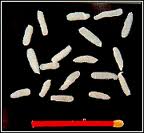 Tapeworm
Tapeworm
Tapeworms are the most common type of intestinal parasite that are spread by fleas or mice. Pets will groom themselves and accidentally ingest a flea, which carries tapeworm. Tapeworms can be transmitted to humans if ever one was ingested. You may find tiny white segments around your pets bottom stuck in their fur or you may seen them in their stools. Definitely a sign your pet may have fleas.
 Flea Allergy Dermatitis
Flea Allergy Dermatitis
Flea bites can cause Flea Allergy Dermatitis (FAD), one of the most common skin allergies in dogs. A very itchy and red rash develops on the skin and usually requires antibiotic treatment to clear the infection. On heavily infested pets, anemia (low red blood cells) can sometimes be seen due to blood loss from flea bites.
Tick Prevention
Ticks
In Lambton County, ticks are becoming a more commonplace now than ever before. Ticks are ectoparasites that live in areas which is undisturbed like long grass areas and under bushes.
A tick will usually start out about the size of a sesame seed and will attach to the host and will start to feed. By the time the meal is done the tick has expanded to about the size of a large pea. The tick then detaches and falls off to lay hundreds of eggs in the environment to start the cycle all over again.
There are many different species of ticks and only a few are pictured below. Some ticks carry disease. In the past few years, we have discovered lyme disease in the area where in the past it was thought only to be in Long Point and the shores of Lake Erie and in the U.S. The deer tick is the vector for Lyme disease (pictured below).
Ticks are usually at their worst from April to June when the environment is moist. When the environment becomes dry the ticks do not hatch and generally we don’t see too many. In the Fall there is a smaller bloom of ticks again as the weather becomes wet again.
Vaccinations
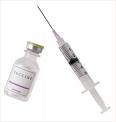 Vaccination along with the other preventive care measures are a very important part of your pets health.
Vaccination along with the other preventive care measures are a very important part of your pets health.
Disease prevention by vaccinating is always less costly than treatment of disease. For example- treatment for a disease such as parvovirus may range anywhere from $900 – $2000.00 depending on the severity, while yearly vaccines are a much more except-able expense. Diseases as such may be untreatable and lead to death if not treated quick enough.
Vaccinations work by training the immune system to respond quickly when confronted by a specific disease. The animals rapid response to exposure to the disease reduces the severity of the illness, prevents possible death and speeds up recovery. By vaccinating your pet with the major common ailments you are boosting their immune system to these pathogens.
There are two types of vaccines that your pet can receive, those being- CORE VACCINES= these are viruses that all pets are routinely vaccinated against (ie. rabies, parvovirus, Leptospirosis, feline calicivirus, etc.) NON CORE VACCINES= These are vaccines that maybe recommended for your pet depending on your pets lifestyle and exposure to certain viruses or bacteria (ie, kennel cough).
All patients are individuals so your Veterinarian can help you to make sure your pet has the best coverage for his/her individual needs.
For a detailed list of what types of vaccines your pet should receive refer to Canine Vaccines or Feline Vaccines.
Balanced Nutrition
 We believe that a pets nutritional health is dependent on receiving the correct amounts of nutrients from the basic nutrient groups (water, protein, fat, carbohydrates, minerals and vitamins).
We believe that a pets nutritional health is dependent on receiving the correct amounts of nutrients from the basic nutrient groups (water, protein, fat, carbohydrates, minerals and vitamins).
Pet foods that are identified as 100% complete and balanced contain all of these required nutrients. We have a wide range of Veterinary maintenance, growth and therapeutic diets to fit the individual needs of each patient

